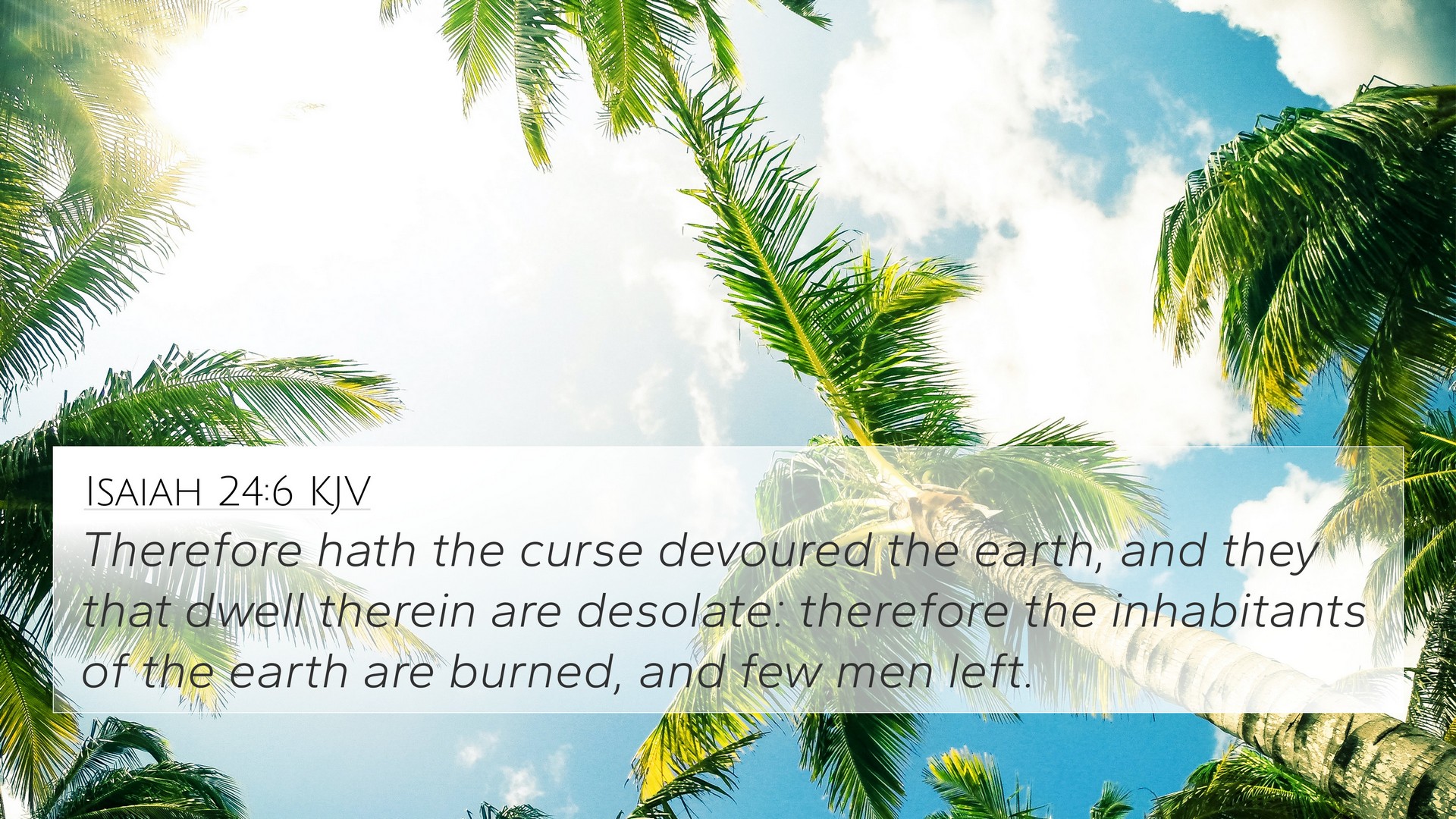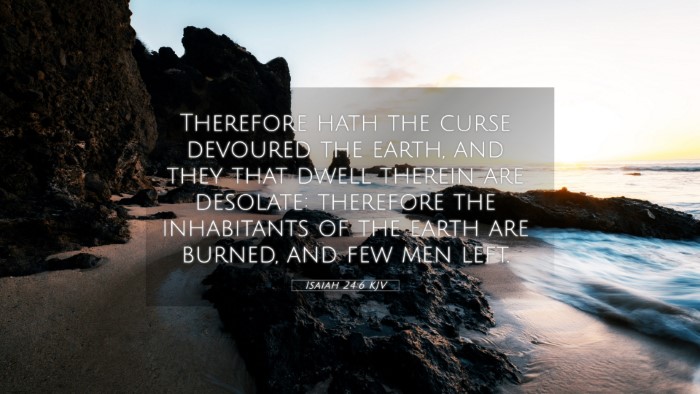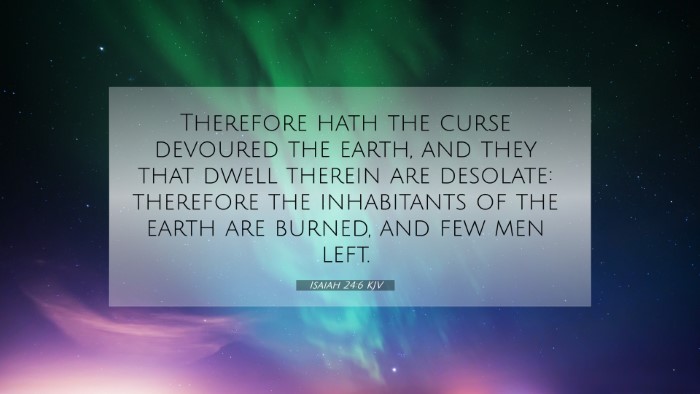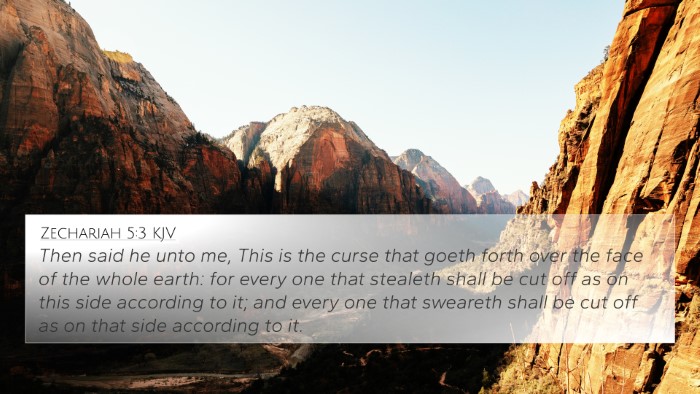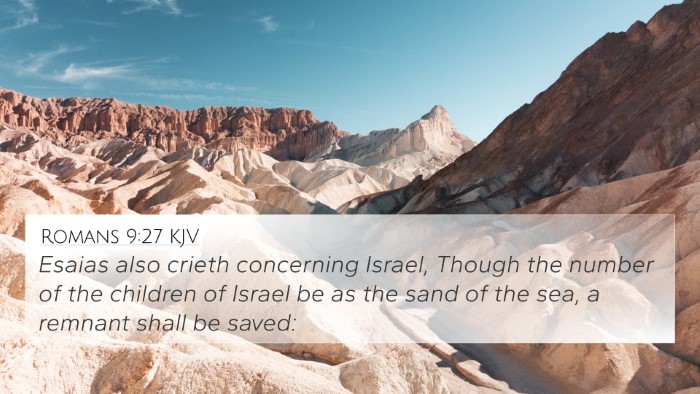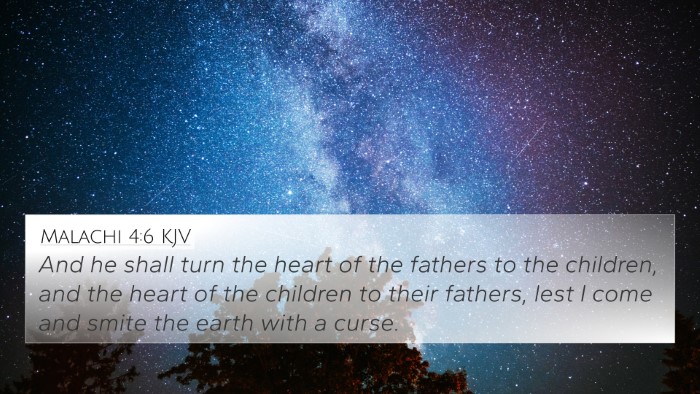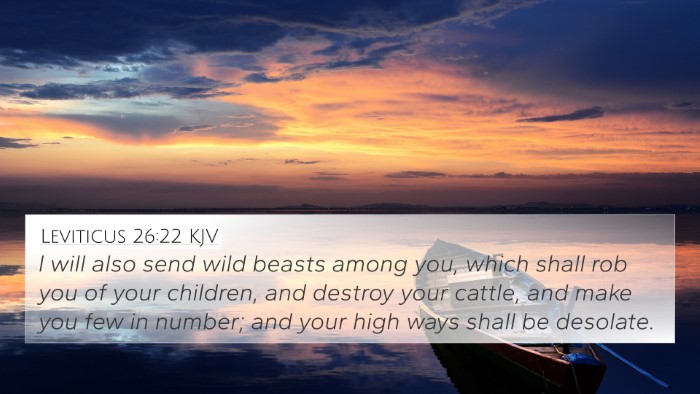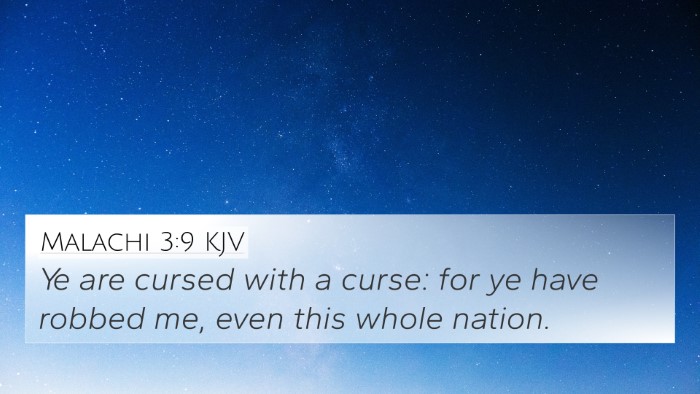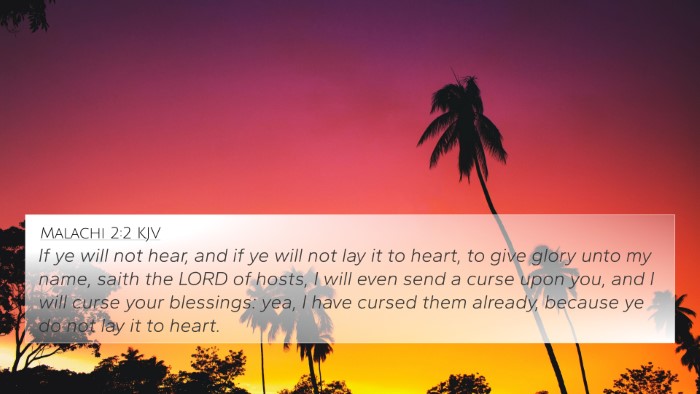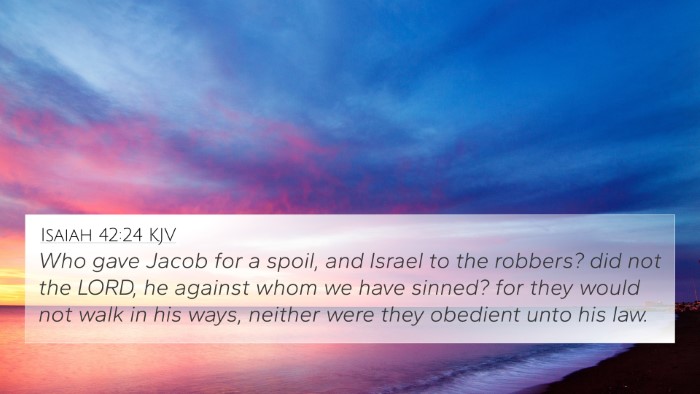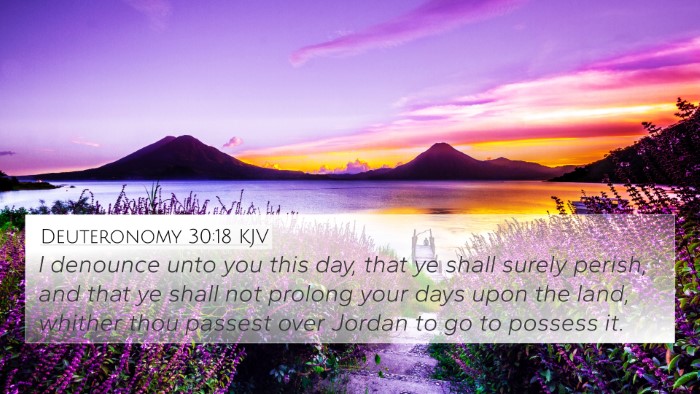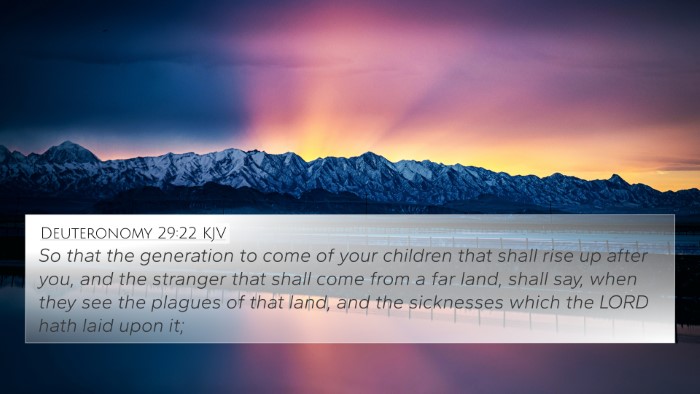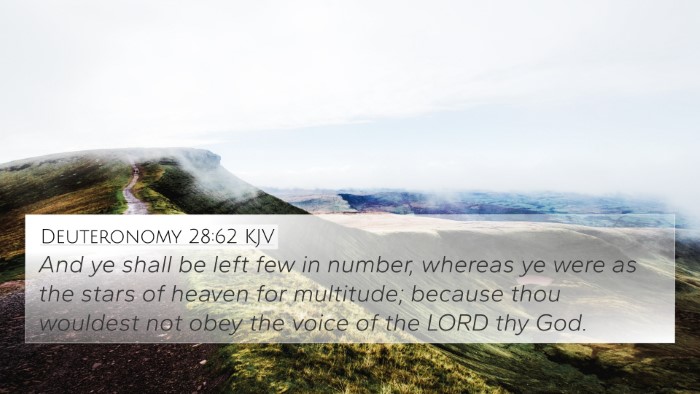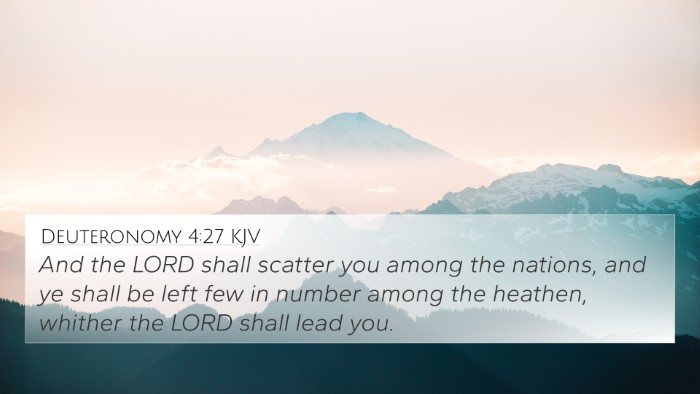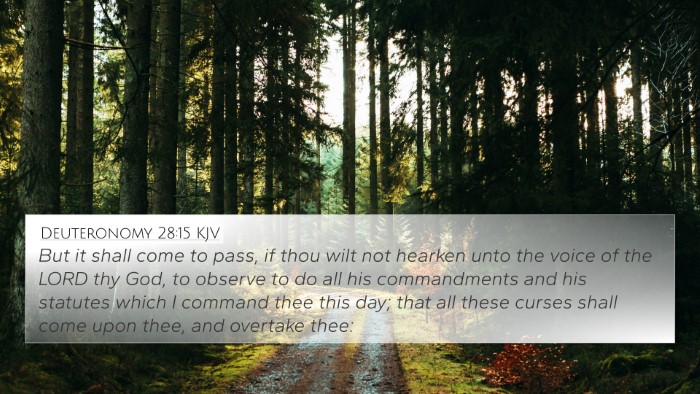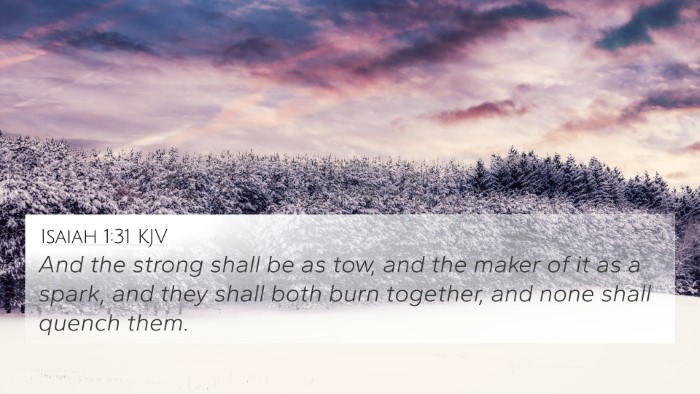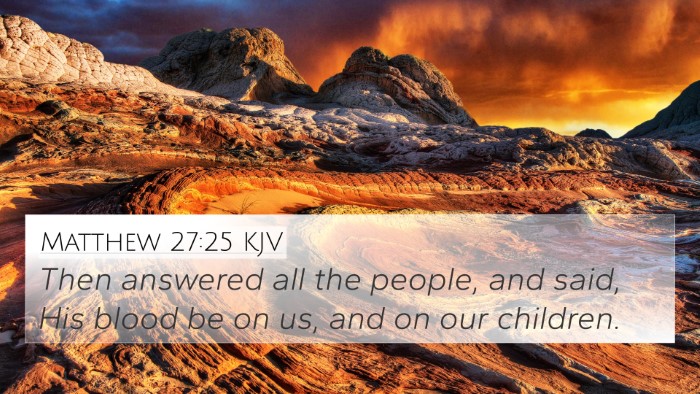Understanding Isaiah 24:6
Isaiah 24:6 (KJV): "Therefore hath the curse devoured the earth, and they that dwell therein are desolate: therefore the inhabitants of the earth are burned, and few men left."
This verse encapsulates a profound warning about the consequences of sin and God's judgment on the earth. The imagery of a curse consuming the land and desolation spreading among its inhabitants serves as a powerful reminder of the impact of human actions upon the world. Below, we explore its meanings through the lenses of various esteemed commentaries.
Commentary Summaries
Matthew Henry’s Commentary
According to Matthew Henry, this verse demonstrates the severity of God’s wrath against sin. He interprets the "curse" as the divine judgment that leads to widespread desolation, suggesting that the earth suffers as a result of the inhabitants' transgressions. Henry stresses the bleak outlook for humanity, highlighting that only a remnant will remain. This reflects God's consistent theme throughout the scriptures, where sin leads to destruction.
Albert Barnes’ Notes on the Bible
Albert Barnes emphasizes the inevitability of God's judgment. He notes that the "curse" is not arbitrary but a direct consequence of humanity's failure to uphold God's commandments. Barnes links this desolation to various instances in scripture where God's displeasure with sin resulted in physical and spiritual decay. His commentary suggests that while judgment may seem severe, it serves as a purification process, leading to renewal.
Adam Clarke’s Commentary
Adam Clarke focuses on the phrase "few men left," interpreting it as indicative of mercy amid judgment. He believes that even in desolation, God preserves a remnant who may later return to Him. Clarke discusses the covenantal implications of this verse, positing that God's faithfulness remains despite humanity's failures and that this promise of a remnant is echoed throughout the Bible.
Bible Cross-References
Isaiah 24:6 is connected with several other verses that highlight themes of judgment, desolation, and remnant salvation:
- Genesis 3:17-19: The curse of the ground due to Adam's sin.
- Isaiah 1:7: Your country is desolate, your cities are burned with fire.
- Jeremiah 4:27: The land will be desolate, yet I will not make a full end.
- Ezekiel 15:6: The wood of the vine is compared to the inhabitants of the earth.
- Revelation 6:12-17: The day of judgment brings devastation and fear.
- Matthew 24:22: For the sake of the elect, those days will be cut short.
- Romans 9:27: A remnant will be saved, reflecting God’s mercy in judgment.
- Revelation 20:9: The ultimate desolation for the unrepentant.
- Isaiah 10:22: A remnant will return, the remnant of Jacob.
- Luke 17:26-30: The days of Noah as a parallel to impending judgment.
Thematic Connections
This verse can be explored through various thematic lenses:
- Judgment and Consequence: The theme of divine judgment is prevalent throughout scripture, starting from Genesis with Adam's disobedience leading to a curse on creation.
- Desolation: Many prophetic books highlight the consequences of the people turning away from God, leading to spiritual and physical desolation.
- Remnant Theology: The persistence of God’s people, symbolized by a "few men left," is a recurring motif, seen in contexts like Elijah’s time or the Babylonian exile.
- Hope Amid Judgment: Just as judgment comes, so does the promise of restoration, reflecting God’s unyielding commitment to His covenant people.
Inter-Biblical Dialogue
Isaiah 24:6 allows for connections across both the Old and New Testaments:
- Old Testament prophets frequently warned of impending judgment, similar to those echoed in New Testament teachings about the end times.
- Jesus references Noah and Sodom to illustrate God's judgment, mirroring the themes found in Isaiah.
- The letters of Paul often explore the concept of sin leading to death—another echo of the results of the curse described in Isaiah.
Conclusion
In summary, Isaiah 24:6 serves as a poignant reminder of the consequences of sin, the reality of God's judgment, and the hope found within His mercy through the preservation of a remnant. The verse not only stands alone but connects to a network of biblical themes and truths that remind believers of both God's justice and mercy throughout scripture.
For those studying this verse, utilizing tools for Bible cross-referencing, such as concordances and guided references, may enhance understanding and reveal deeper connections between scriptural texts.
